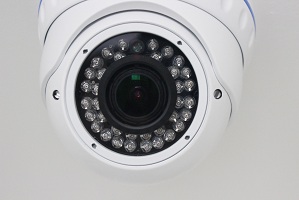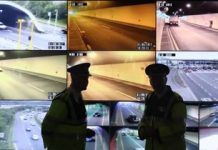A new Edith Cowan University (Australia) project is exploring the opinions of aged care staff and family members on surveillance cameras in residential aged care facilities. The project is inviting aged care stakeholders to complete a survey on their views on using closed-circuit television (CCTV) monitoring systems in aged care home common areas and private spaces including bedrooms and bathrooms.
The survey is targeting nursing and personal care staff, allied health workers, non-direct care staff such as managers, people working in reception and hotel services and board members plus relatives of aged care residents. The project will also include one-on-one interviews with staff and relatives and explore how CCTV can be used to improve aged care resident safety.
Lead researcher Dr Caroline Vafeas said CCTV was one way of monitoring poor care standards, which the aged care royal commission highlighted many instances of.
“It highlighted an issue that we are not doing as much as we should within the aged care setting to make sure that older people feel safe and secure in their living environment,” Dr Vafeas told Australian Ageing Agenda.
CCTV can offer “safety and security for both the healthcare professional and the resident in a facility,” said Dr Vafeas, director of undergraduate nursing studies at ECU. “If something is said about a member of staff that happens, they would be able to see that the member of staff was totally working within their scope and there wasn’t an issue at all.”
This survey follows a pilot study ECU conducted in 2019 at one aged care facility in Perth which found that family members were more likely to want CCTV in common areas (57 per cent) than residents (38 per cent) and staff (36 per cent). However, Dr Vafeas said only 48 per cent of families and 25 percent of residents wanted CCTV in private rooms. “And only 14 percent of staff felt that they would be happy with cameras in private rooms,” she said.
Dr Vafeas said she hoped this project would build on the findings from the pilot study.
“We want a wider viewpoint to see whether the pilot was actually indicative of people’s thoughts and feelings,” she said.
Dr Vafeas said she is interested in working with an aged care provider to install surveillance cameras to evaluate its impact on care quality and exploring how many minutes of care a resident receives in a day. These findings could be used as part of staff education and training, she said. It is the joint responsibility of the aged care sector to improve residents’ care and security, Dr Vafeas said. “It’s important that we acknowledge that we need to be doing more in the space,” she said.








